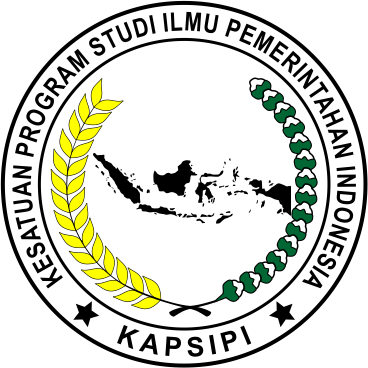Precision National Driver License: Digital Application of Indonesian National Police as a Model of Public Service Transformation
DOI:
https://doi.org/10.18196/agimjournal.v1i2.11Keywords:
Public Service, Digital ApplicationAbstract
This article examines the adoption of the digital Precision National Driver's License (SINAR) application by the Traffic Corps of the Indonesian National Police as a paradigm for the modernization of public services. SINAR comprises e-Tilang, Traffic Management System (TMS), and SIM data input applications, which are designed to enhance traffic management and law enforcement. These applications streamline the ticketing process, enhance precision, and simplify the overall procedure. Furthermore, the National Police provides an internet-based portal for the submission of applications for international driver's licenses, which streamlines the application procedure. The implementation of these digital applications has greatly enhanced the operating efficiency and effectiveness of the National Police Traffic Corps while ensuring road safety and public satisfaction.
References
Agostino, D., Bracci, E., & Steccolini, I. (2021). Accounting and accountability for the digital transformation of public services. Financial Accountability &Amp; Management, 38(2), 145-151. https://doi.org/10.1111/faam.12314
Aldri Frinaldi. (2023). Systematic Literature Review Inovasi Pelayanan Publik Berbasis Digital. https://www.researchgate.net/publication/373406367_SYSTEMATIC_LITERATURE_REVIE W_INOVASI_PELAYANAN_PUBLIK_BERBASIS_DIGITAL
Anggara, S. (2024). The development of digital service transformation framework for the public sector. Ieee Access, 1-1. https://doi.org/10.1109/access.2024.3406571
Arwanto, B. (2022). Public satisfaction study on the digital transformation of the public service system during the covid-19 pandemic (2019-2021). Proceedings of the 1st International Conference on Social Science (ICSS), 1(1), 23-28. https://doi.org/10.59188/icss.v1i1.11
Biondi, L. and Lapsley, I. (2014). Accounting, transparency and governance: the heritage assets problem. Qualitative Research in Accounting & Management, 11(2), 146-164. https://doi.org/10.1108/qram-04-2014-0035
Filgueiras, F., Flávio, C., & Palotti, P. (2019). Digital transformation and public service delivery in brazil. Latin American Policy, 10(2), 195-219. https://doi.org/10.1111/lamp.12169
Filimonau, V. and Naumova, E. (2020). The blockchain technology and the scope of its application in hospitality operations. International Journal of Hospitality Management, 87, 102383. https://doi.org/10.1016/j.ijhm.2019.102383
Gafar. (2023). Bayar Pajak Motor Tanpa Pungli dan Antre, Pakai Aplikasi SIGNAL. https://www.rri.co.id/daerah/295641/bayar-pajak-motor-tanpa-pungli-dan-antre-pakai-aplikasi-signal
Iyamu, I., Xu, A., Gómez-Ramírez, O., Ablona, A., Chang, H., McKee, G., … & Gilbert, M. (2021). Defining digital public health and the role of digitization, digitalization, and digital transformation: scoping review. Jmir Public Health and Surveillance, 7(11), e30399. https://doi.org/10.2196/30399
Janssen, M., Matheus, R., Longo, J., & Weerakkody, V. (2017). Transparency-by-design as a foundation for open government. Transforming Government: People, Process and Policy, 11(1), 2-8. https://doi.org/10.1108/tg-02-2017-0015
Latupeirissa, J. (2024). Transforming public service delivery: a comprehensive review of digitization initiatives. Sustainability, 16(7), 2818. https://doi.org/10.3390/su16072818
Lindgren, I. and Veenstra, A. (2018). Digital government transformation.. https://doi.org/10.1145/3209281.3209302
O'Regan, B., King, R., & Smith, D. A. (2021). Combining accountability forms: transparency and “intelligent” accountability in a public service organization. Accounting, Auditing &Amp; Accountability Journal, 35(5), 1287-1315. https://doi.org/10.1108/aaaj-03-2020-4473
P Renato. (2021). Penerapan Teknologi dan Digitalisasi Wujudkan Polri PRESISI. https://www.dnews.id/2021/05/31/penerapan-teknologi-dan-digitalisasi-wujudkan-polri-presisi/
Prabawati. (2023). Transformasi Digital Pelayanan Harus Utamakan Kepentingan Publik. https://diskominfo.kaltimprov.go.id/pemerintahan/transformasi-digital-pelayanan-harus- utamakan-kepentingan-publik
Prihatin, P., Amri, P., & Wicaksono, A. (2023). Public service transformation trough digital-based services during covid-19 pandemic in riau province, indonesia. Otoritas Jurnal Ilmu Pemerintahan, 13(1), 111-124. https://doi.org/10.26618/ojip.v13i1.9861
Putri, O. D. (2023). Systematic literature review penerapan e-government pada pelayanan publik di indonesia skripsi.
Seepma, A., Blok, C., & Donk, D. (2020). Designing digital public service supply chains: four country-based cases in criminal justice. Supply Chain Management an International Journal, 26(3), 418-446. https://doi.org/10.1108/scm-03-2019-0111
Sihombing, T. (2024). Digital technology adoption for village public administration—evidence from indonesia. Journal of Infrastructure Policy and Development, 8(4). https://doi.org/10.24294/jipd.v8i4.3444
Sisilianingsih, S. (2019). Analisis Faktor Transformasi Digital Pelayanan Publik Pemerintah di Era Pandemi. https://jtiik.ub.ac.id/index.php/jtiik/article/view/7059/pdf_1.






